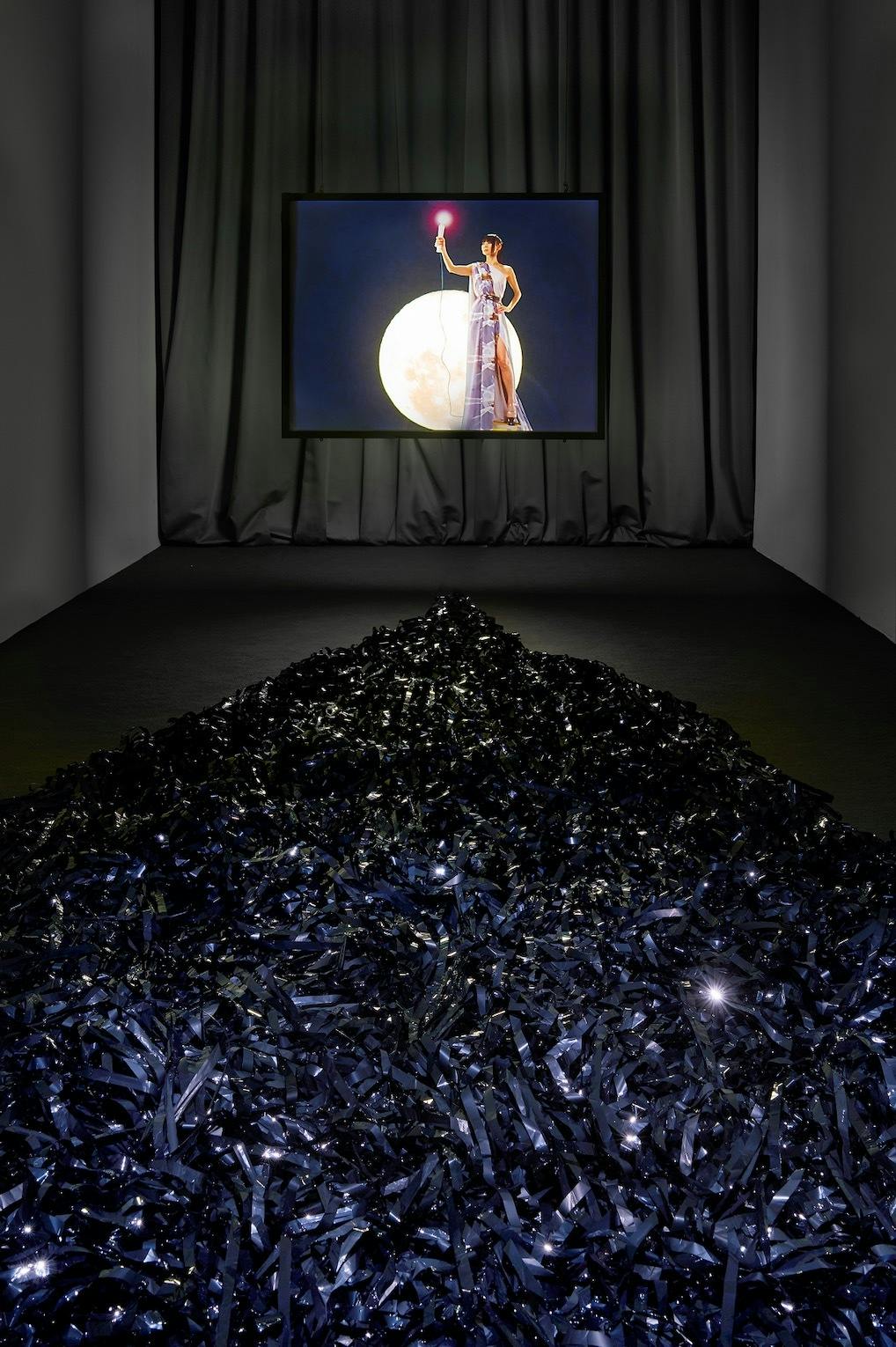
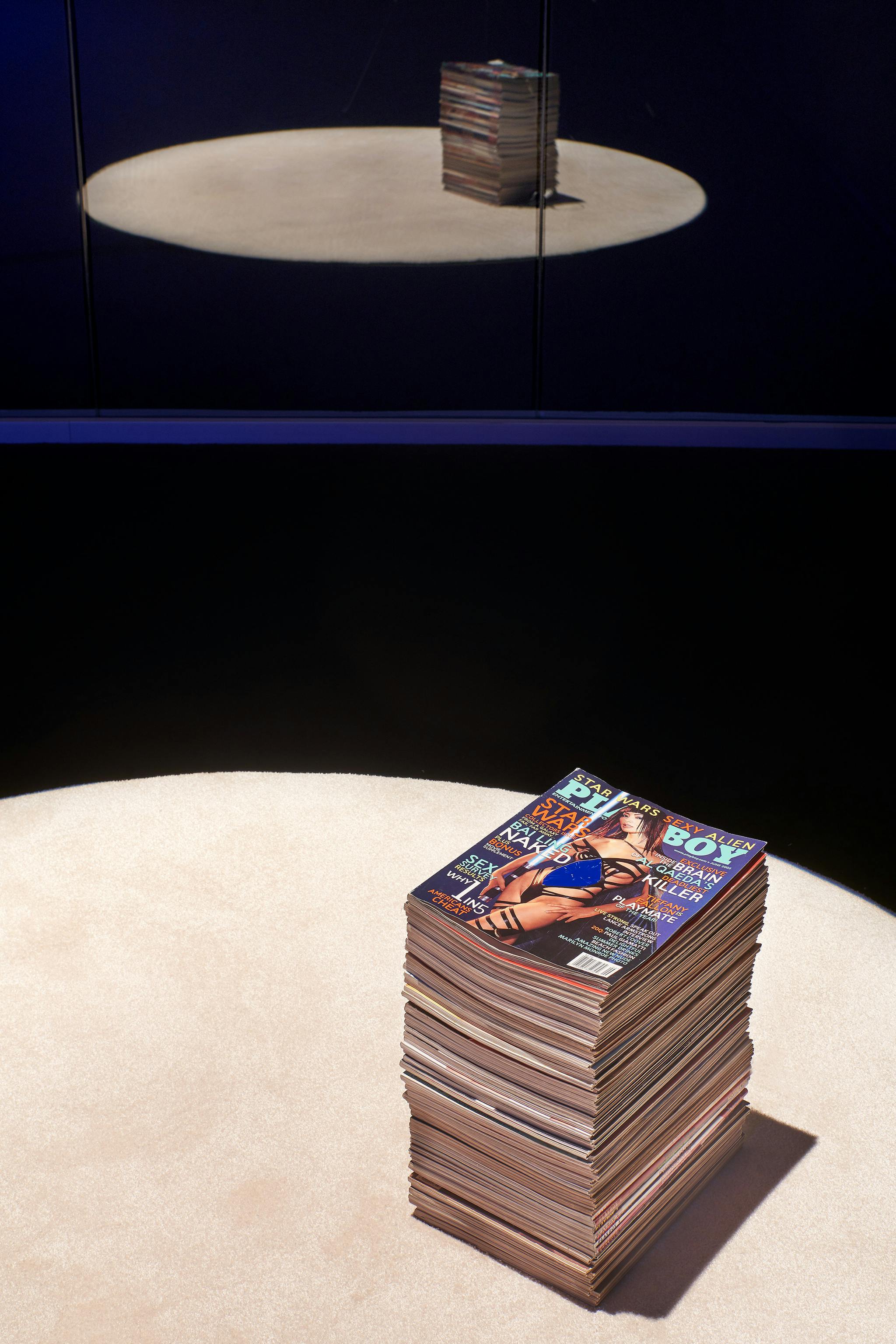
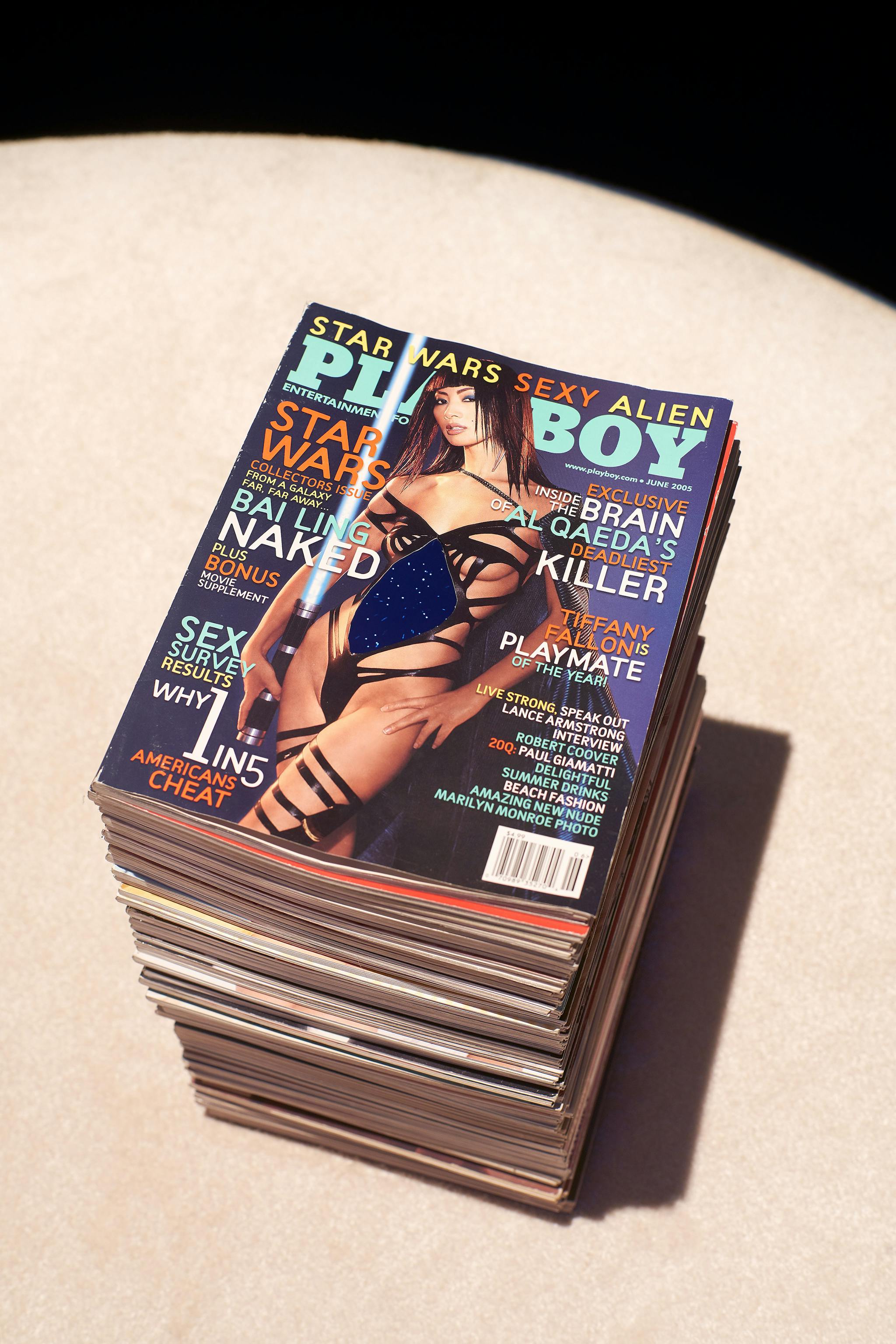
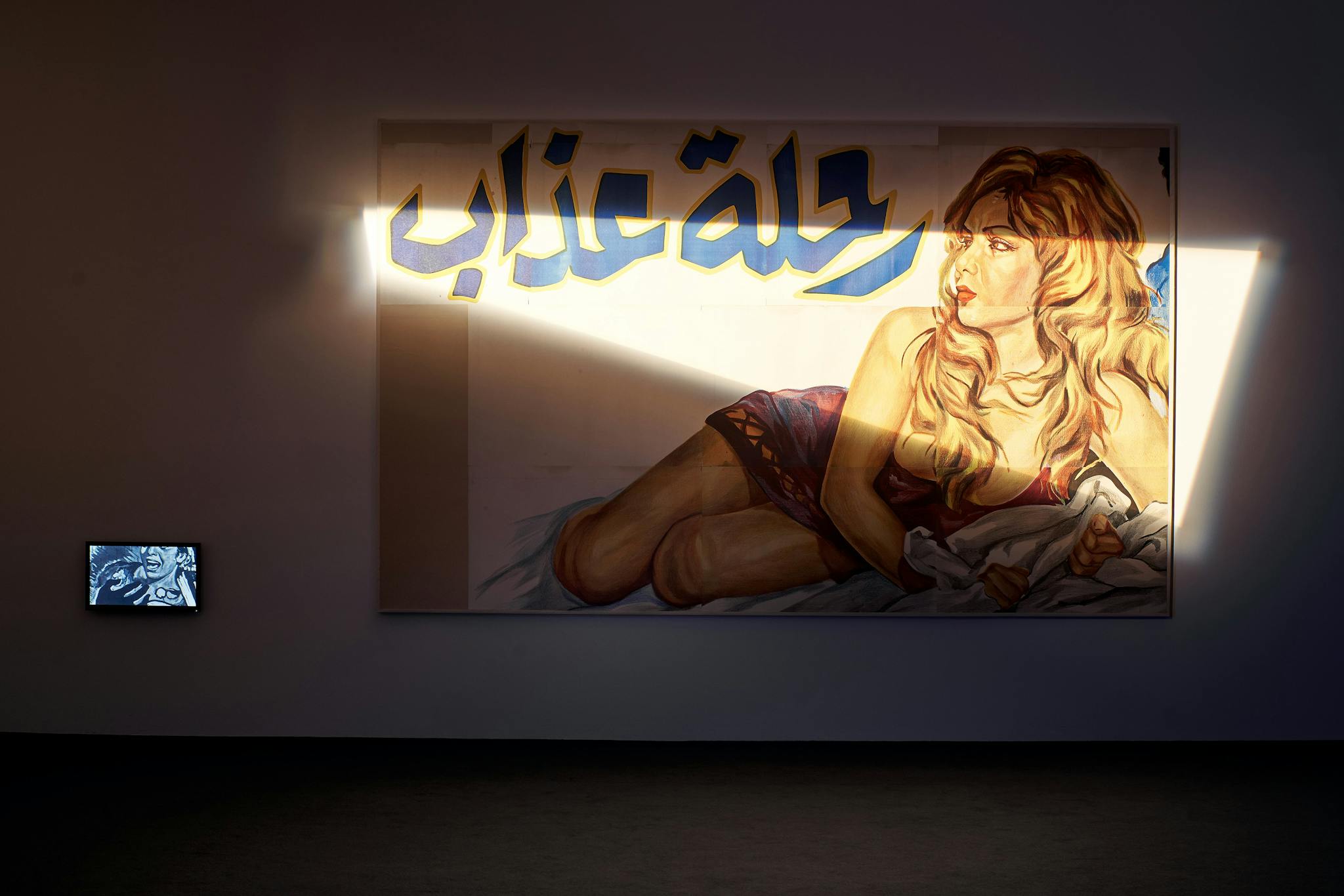
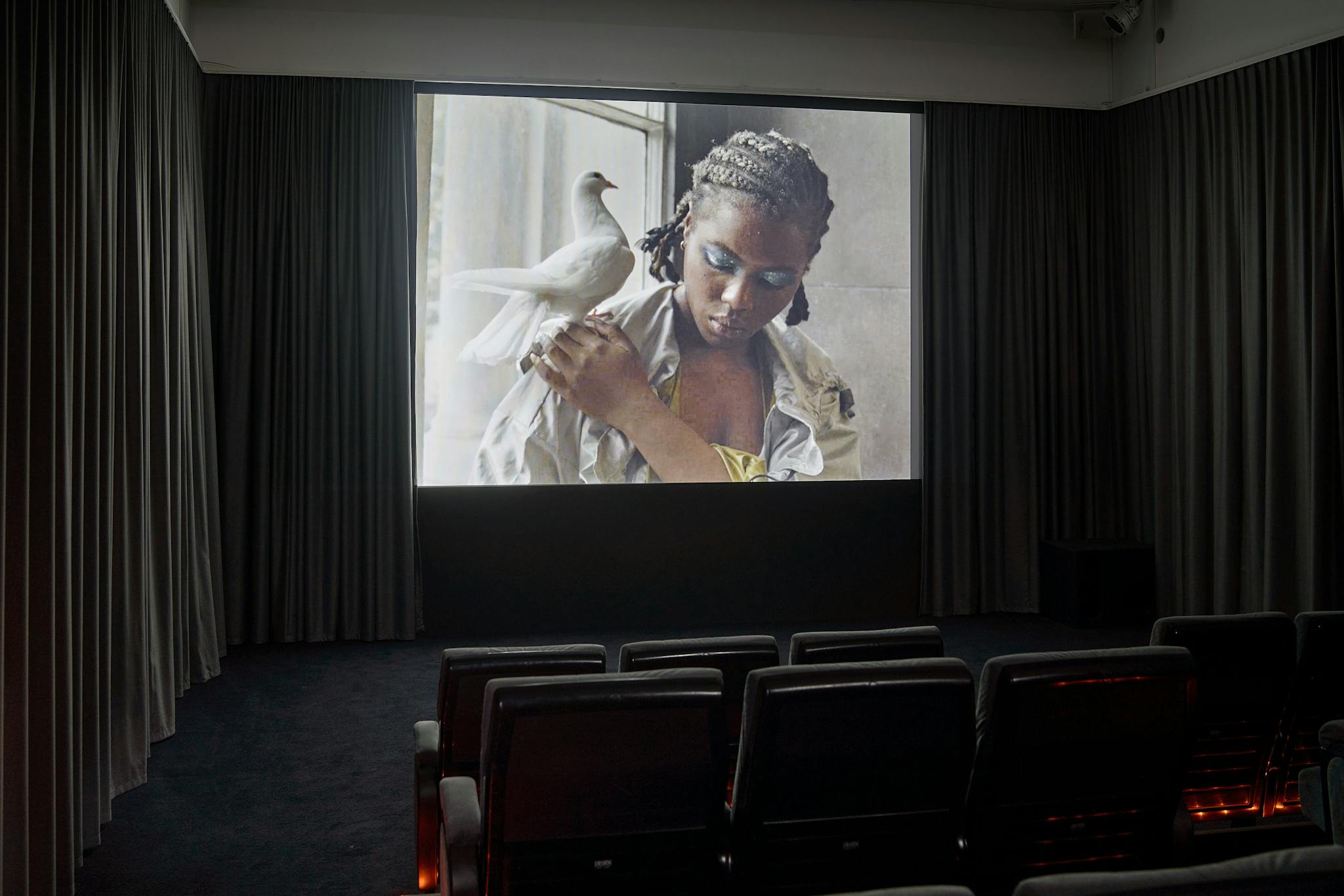
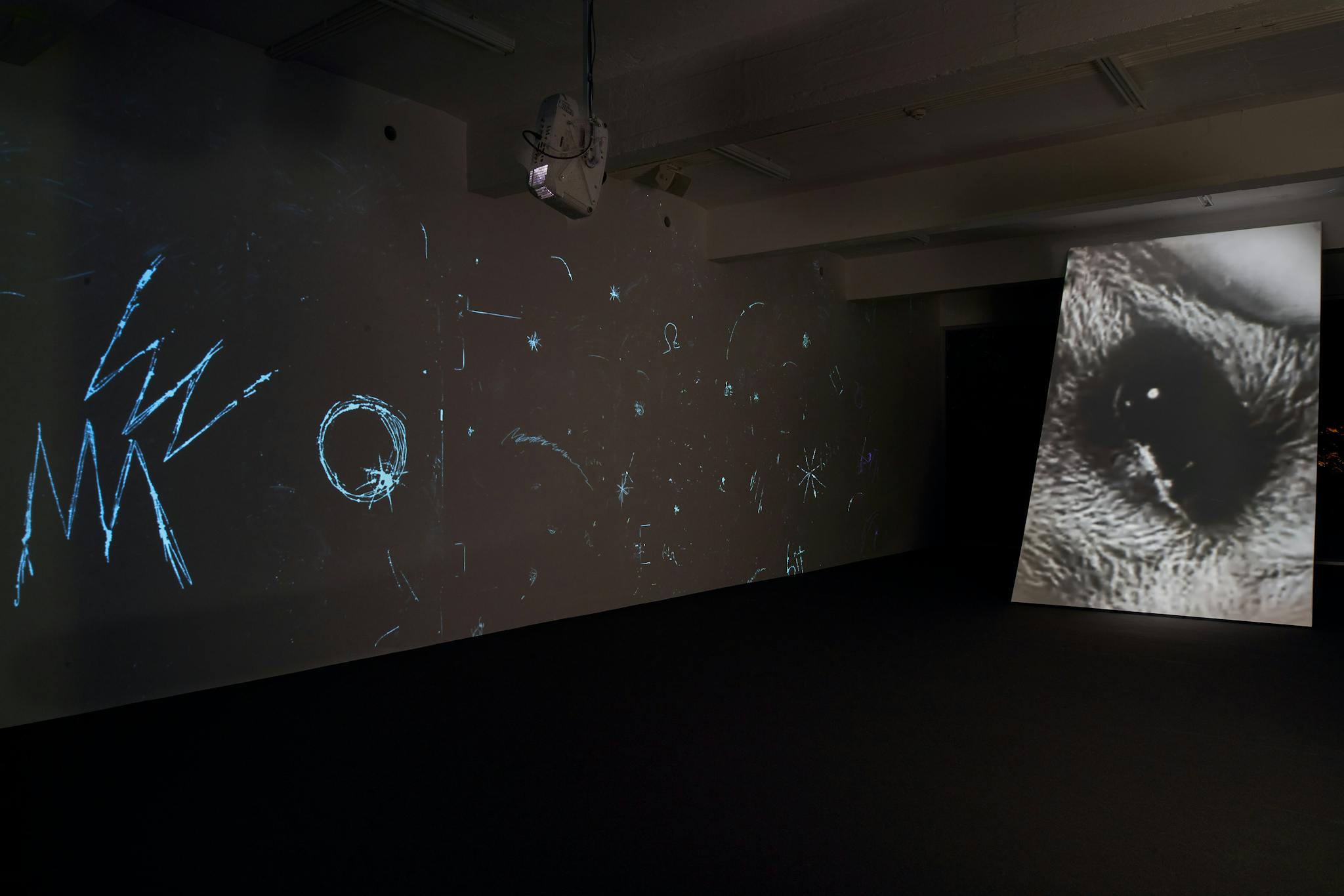
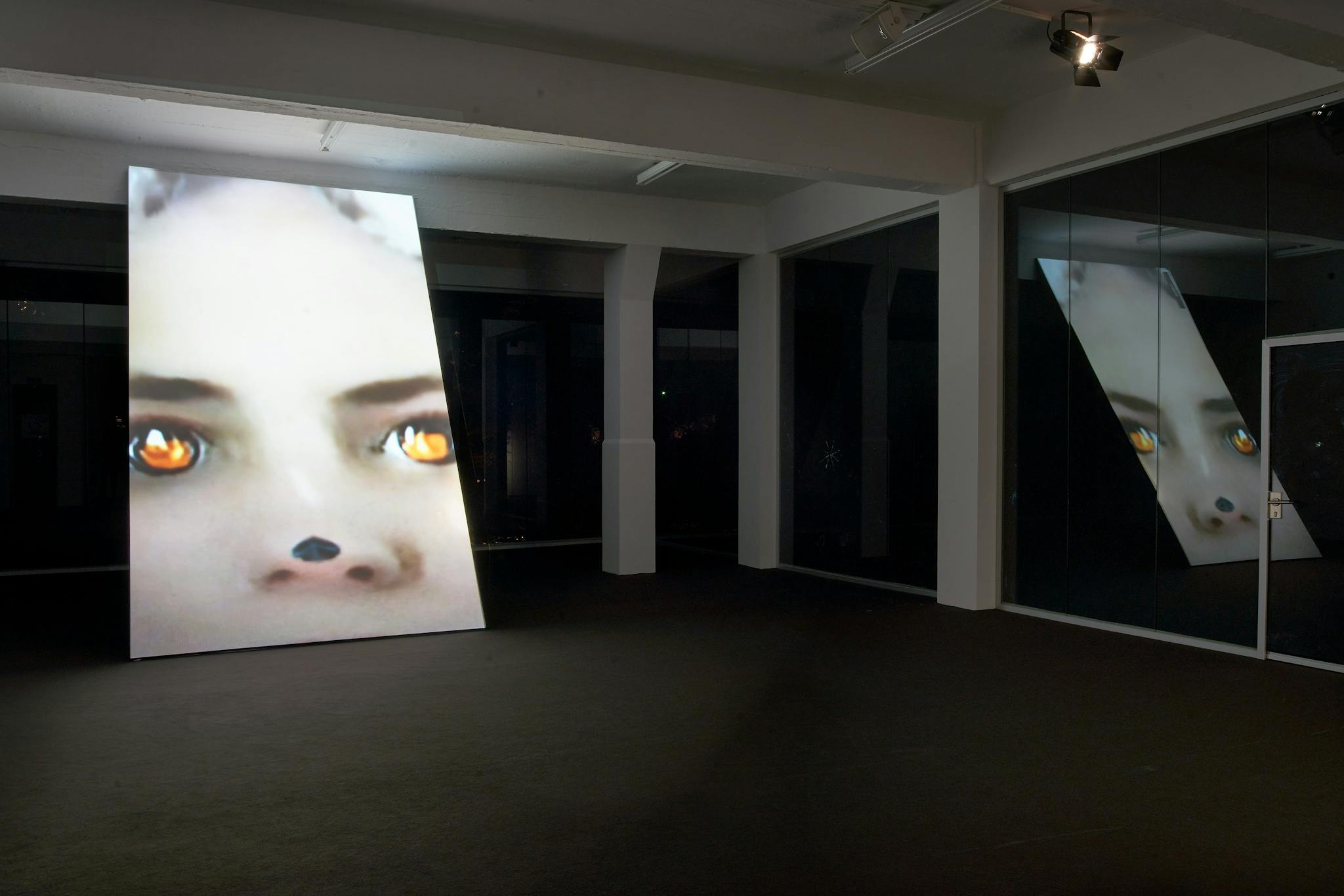
BITCH OMEGA, Sophia Al-Maria’s first solo exhibition in Germany, brings together a selection of moving-image works concerning the writing and imaging of history and myth via our relationship to the camera and the screen. In her work, the Qatari-American artist explores forms of redress and revision, engaging with writing and drawing as a way of rejecting speechlessness and acknowledging untold histories and lives that have been suppressed, silenced, or have gone unwritten. Delving into the murky terrain of post-colonial identity, representation, and desire, the works featured in the exhibition reflect and resist the deeply ingrained forms of violence perpetuated by the imposition of narratives, the gaze or the camera, and the circulation of images in both a public and interior sphere.
BITCH OMEGA includes a new diaristic video essay (2020) of the same name, which takes the downcast gaze of the omega wolf as a poetic position of hyper-subjectivity. For Al-Maria, the omega wolf—the lowest ranked member of a pack—is an observer of history at the “omega point”—the idea that everything in the universe is spiralling toward a final unification. The film explores point of view and the difference between being a witness and a participant in historical events at a time of extreme cultural, political, and environmental change. Conceptualized as a film in multiple parts, the work will change over the course of the exhibition; only at the end will the whole work be available in the space. Bitch Omega is comprised of written text, phone footage, found images, and childhood videos.
The exhibition also presents Beast Type Song (2019), Al-Maria’s most ambitious film to date, featuring performances by the artist boychild and actors Yumna Marwan and Elizabeth Peace. First shown at Tate Britain in September 2019, the film is set in a post-apocalyptic future during a time of solar war and is inspired by Etel Adnan’s 1989 book The Arab Apocalypse. Other references include Caliban and Sycorax from Shakespeare’s The Tempest and the writings of Michelle Cliff and Mohamed Choukri, among others. Beast Type Song is a film-within-a-film that lays bare the production of its own making: as it unfolds, one of the narrators, played by the artist herself, discloses the various devices and plot structures used to construct the storyline. Together with the cast, Al-Maria reflects on the physical and psychological consequences of colonialism, on what it means to not be in charge of one’s own narrative, to be defined as “Other” from an outside position.
Also featured in the show are two works from 2018, Major Motions and White Man’s Bible (Revenge Porn), both featuring Chinese actress Bai Ling. In the single-channel video loop Major Motions she impersonates the Torch Lady from the logo of Columbia Pictures, a Grecian style white woman holding up a shining torch as a symbol of enlightenment modelled after the early female personification of America known as Columbia. Al-Maria substitutes the torch with a vibrator and places Bai in front of an ever-rising moon accompanied by a distorted and vertiginous soundtrack. In doing so, the artist turns one of cinema’s most iconic logos into a playful symbol of female empowerment and desire. Bai is also the protagonist of the video installation White Man’s Bible (Revenge Porn), which consists of 59 stacked copies of Playboy magazine, including Bai’s cover issue and a video playing on an iPhone. In 2005, Bai became the first Asian woman to be featured on the cover of the magazine, which cost her a role in Star Wars, whose producers subsequently cut her scenes from the final edit of the movie. The installation includes an interview with the actress about this experience.
Drawing on Al-Maria’s personal experiences from a time she lived in Cairo and worked as a screenwriter, the painting Rape Gaze (2014) and the videos Torturous Journey and Class A (both 2014) all relate to a film project titled Beretta, which Al-Maria never produced due to rights issues and censorship. The script for Beretta was inspired by rape-revenge movies and portrayed a young mute woman out to avenge her perpetrators. The remnants of this project highlight the on- and off-screen misogyny and racism that brought production to a halt, utilizing footage from auditions, interviews with the lead actress, and fragments of 1970s and 80s Egyptian movie posters depicting what Al-Maria calls “the rape gaze.”
In BITCH OMEGA, the artist brings together various threads that have defined her practice for the past decade. Her ongoing engagement with writing and the imaging of history through broadcast television, print advertising, and social media challenges the perspective of the omniscient narrator, rattling at the foundations of Western ideologies and power. Instead, she turns inward - toward the hypersubjective - asking how the personal affects our understanding of the world. “In order to process the encounter with reality,” says Al-Maria, “our minds compress and distort events in the external environment into a comprehensible rendering—perception is an assemblage, a sliver of some platonic ideal of ‘the truth.’” The question remains: Whose truth?
BITCH OMEGA is part of HORIZONTAL VERTIGO, a year-long program at the JULIA STOSCHEK COLLECTION in Düsseldorf and Berlin, curated by Lisa Long.
Supported by the Cultural Office of the City of Düsseldorf.
Images courtesy of Julia Stoschek Collection, Photo: Alwin Lay